|
Space Engine and Primary Schools
|
|
| Frostbreath | Date: Monday, 04.03.2013, 18:45 | Message # 1 |
 Space Pilot
Group: Translators
 Netherlands
Netherlands
Messages: 118
Status: Offline
| NOTE: Not sure if this topic fits here. Please tell me if it's in the wrong place. =)
Hello everyone!
Allow me to give a short introduction of myself. I am Frostbreath, living in the Netherlands and am currently studying to become a teacher at a primary school. In 4.5 years I hope to have my own class!
My hobby is totally astronomy and I am of the opinion that astronomy should become a more important part of the educational program at primary schools, or actually all school types. Therefor, I decided to set up my own project about astronomy in which Space Engine plays a major part. In this topic, I will tell about my experiences.
Feel free to tell me what you think of it. Maybe you have suggestions about certain lessons to give. Or maybe you want to share your opinion about astronomy on schools! Enjoy!
I am doing my current intern at a primari school in my hometown. The kids I teach are between age 11 and 13.
Day 1
Lesson of today: An introduction into astronomy & A tour through the solar system
To kick off the project I've set up a nice PowerPoint to show what's going to happen in the 6 days to come. Today, I introduced the kids to astronomy with a story about the history of it. After that, they went on a "tour" with Space Engine. To do so, I took my laptop with me and connected it to the digital blackboard. It worked flawlessly and it was beautiful to see all planets on such a big screen. The children were truly amazed when I took them to the planets in our own solar system, visited the rings of Saturn, gasped at the weird position of Uranus and talking about why human find Mars so interesting. TOns of questions rose about why Venus was hotter than Mercury, eyes grew bigger when I told them you cannot stand on gas giants and they learned why Pluto is a dwarf planet these days.
At the end, I took the children to the most scary place in the Milky Way: the supermassive black hole at the center. The children almost freaked out when they saw the screen go nuts by the gravitational strength of the black hole.
All in all it was a great and overwhelming first lesson. The children were very enthusiastic about it and asked what this "awesome software is".
Day 2
Lesson of today: Exoplanets
Today the kids went on another trip in Space Engine. This time, they would learn about exoplanets. I explained them they were planets which orbit another star, or sun. Fun fact: over 50% of the children didn't know the Sun was a star. Or: that all of those stars were a sun of themselves! Before we went out on a trip, they had to write down what they remembered from yesterday. To my suprise, they had a lot to write down. Things as "I didn't knew Mars was red", "I learned about gas giants and that you can't walk on them" or "I learned about dwarf planets". Truly awesome!
We visited several exoplanets to see what the effect of the distance to it's star is. the effect of the color of the star on the surface and the type of planet. After the tour, their job was to make a drawing of the surface of an exoplanet. They had to take into account:
- The color of the star and it's effect.
- The type of the planet.
- The distance of the planet to it's star.
- Gas giants are not allowed, but you may land on their moons.
Some drawings were truly amazing. I have photographed some of the best looking results:
This one took the effect of the star color in the drawing. The mountains are blue-ish.

Same with a red star!

Unfinished, but vbery promising drawing from a girl. The brownish parts are the mountains.

A person looking at blue mountains glowing red thans to the star.

My favourite, due to the nice effects. Sky color and surface are great.

This one is from a boy. There is no atmosphere, but he forgot to take the star color into account. :P

Day 3
Lesson of today: Gravity and scale. Maths in space!
Today, the children learned about Isaac Newton, gravity and scaling the planets down so they could recreate them from materials like clay. They calculated their own weight on the other planets and learned about the travel time of an airplane from the planets of our solar system to the sun. Today was also a preperation for next week's lesson: make a scaled solar system! The planets had to be sized down. Jupiter, for example, has become 14cm in diameter and Mercury 0,4cm. Looking forward to the results!
Day 4
Lesson of today: The mighty Sun
At first, this would be the day where they would either create a solar system on scale or make a poster about any subject from space. However, the sun was shining brightly and I promised to bring my telescope to school when the weather was good. And so I did.
They were extremely excited to seen the Sun's glory in detail. Two children helped me build up the telescope and every time, 8 children could take a look. They were very suprised: "Sir. I see an orange lamp through the ocular!" "That's the Sun." "Ow..." They saw sunspots and the heat waves which were caused by temeprature differences inside the telescope and it's surroundings. Some wished to see planets and stars and maybe I will do this again at nighttime!
Day 5
Lesson of today: Make a scaled down solar system OR make a poster about an object in space.
Today's introduction was rather unique. In the weekend before this day, I composed a video in Space Engine. I used the video to open this day. It summarized what the kids learned past week during day 1-3. They loved the video. It showed all 8 planets of our solar system, different kinds of exoplanets, binary star systems, a black hole and much more. Their job was to write down what they know about parts of the video. So let's say they saw Mars, what did they remember about it? Once again, I was overwhelmed by the amount of knowledge still in their brains!
The main part of today's lesson was to either build a scaled down solar system or to make a poster about any subject in space. They were allowed to choose what they wanted to do and funnily enough it was about 50-50. The children making the solar system were given the scaled down diameters of all 8 planets. Mercury was 0,5cm en Jupiter 14,2cm. All planets except for Jupiter and Saturn were made out of clay balls. The results turned out extremely well. Their diameters were almost exactly correct! Jupiter and Saturn werre made of balloons covered in glue and pieces of newspaper. Tomorrow, when the glue and clay are hopefully dried up, we are going tp paint the planets into their true colors!
The other half of the group went on to make a poster in a duo. They had to choose a subjext they'd like to investigate more. There was a very wide range of subjects: from binary star systems to Saturn to comets to red giants. The posters are all starting to look really cool and it's clearly visible all kids are greatly enjoying this project as a whole! They are far from finished, so day 6 will be a continuation of today.
Here's the video:
http://www.youtube.com/watch?v=HSNm3zT5OBw
Day 6
Lesson of today: Make a scaled down solar system OR make a poster about an object in space. (Part 2)
Today, we continued to create a scaled down solar system or a poster. One poster duo managed to finish it already. Their subject is binary star systems and it looks really cool. They found some nice pictures on the net and the information they provide on the poster is very good. The solar system group started painting the planets. Mercury and Mars were pretty hard to do due to their sizes and so were Earth and Venus. To provide them with the true colors of the planets, I made screenshots of all 8 in Space Engine. One group had a very detailed Earth! Next week, both poster and solar system will be finished.
Day 7
Lesson of today: Make a scaled down solar system OR make a poster about an object in space. (Part 3)
A short one on this day, as it was mainly the same as last time. The children had time to finish up their miniature solar systems or posters. Everything turned out very well. We're planning on hanging the solar systems from the ceiling somehow. The children who made the poster will hold a presentation at Day 10!
Day 8
Lesson of today: Make your own waterrocket!
Coming soon!
Day 9
Lesson of today: Make your own waterrocket! (Part 2)
Coming soon!
Day 10
Lesson of today: Poster presentations & Ending
Coming soon!
The grand Night of the Stars
This evening will be organized for both the kids and their parents. Once again, the telescope will be moved to the school, but this time, they can enjoy the night objects. We will take a loot at the Orion Nebula, Jupiter, the Moon and if we're lucky we can even see comet PANSTARRS! FOr the parents, we can set up a small exposition from what the kids have made over the past 3 weeks. It will only go on when the weather is good.
Amateur astronomer. Owner of a Celestron C8 telescope and, of course, Space Engine. Translator for Dutch.

Edited by Frostbreath - Thursday, 14.03.2013, 22:31 |
| |
| |
| Tim | Date: Monday, 04.03.2013, 19:10 | Message # 2 |
 Explorer
Group: Users
 Belgium
Belgium
Messages: 296
Status: Offline
| Why weren't you my teacher? :P
Either way I'm not surprised the kids didn't know anything about it. We didn't see anything about astronomy until the age of 17/18 and even then I know most about the universe due to self-studying.
Astronomy is sorely lacking in the educational systems and I find that a pity, for it will not just make young students eager to learn sciences, but it will also brighten their vision on the world and leave them more skeptical about religion and why we should invest more in exploration and research and less in military etc.
I do think you made it a little hard with the maths in space part though, I'm not sure if an eleven year old would understand and remember that all. I would've tried to explain it all through metaphors etc. Like comparing Earth to a ball or something.
If they did understand all of it, then my faith in humanity has been restored even more, bit by bit :P
Anyways, big thumbs up, keep up the good work and I honestly hope you pass your internship.
Greets 
|
| |
| |
| Frostbreath | Date: Monday, 04.03.2013, 19:31 | Message # 3 |
 Space Pilot
Group: Translators
 Netherlands
Netherlands
Messages: 118
Status: Offline
| Quote (Tim) I do think you made it a little hard with the maths in space part though, I'm not sure if an eleven year old would understand and remember that all. I would've tried to explain it all through metaphors etc. Like comparing Earth to a ball or something.
This whole project is quite a challenge to do. The universe rasies more questions than answers and is a difficult thing to understand. It can be difficult to tell about the awesomeness of space in "child language", but since I already have over 2 years of experience in this, I had little trouble doing so. However, the maths I did may sound more complicated than they were. I did it like this:
I wrote down the mass of a planet compared to Earth (Earth=1x). So Mercury has a mass of about 0.4x the Earth. They had to multiply their own weight with the mass number. So say my weight is 60kg, it would be 60x0.4. They know how to calculate this. The answer is 24kg in this case.
Thanks a lot for your comment about this. It is indeed true that astronomy is barely touched at schools. I want to make this project a returning thing each year! 
Amateur astronomer. Owner of a Celestron C8 telescope and, of course, Space Engine. Translator for Dutch.

Edited by Frostbreath - Monday, 04.03.2013, 19:34 |
| |
| |
| HarbingerDawn | Date: Monday, 04.03.2013, 19:52 | Message # 4 |
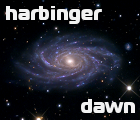 Cosmic Curator
Group: Administrators
 United States
United States
Messages: 8717
Status: Offline
| Quote (Frostbreath) So Mercury has a mass of about 0.4x the Earth
Surface gravity, not mass! 
All forum users, please read this!
My SE mods and addons
Phenom II X6 1090T 3.2 GHz, 16 GB DDR3 RAM, GTX 970 3584 MB VRAM
|
| |
| |
| anonymousgamer | Date: Tuesday, 05.03.2013, 01:07 | Message # 5 |
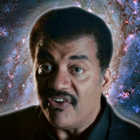 World Builder
Group: Global Moderators
 United States
United States
Messages: 1011
Status: Offline
| Quote (Tim) Either way I'm not surprised the kids didn't know anything about it. We didn't see anything about astronomy until the age of 17/18 and even then I know most about the universe due to self-studying.
There was a bit of astronomy in my elementary school but not much. At that age I was addicted to reading science books, especially astronomy. I still have many of those books 
Desktop: FX-8350 4.0 GHz, 8 GB DDR3 RAM, EVGA GeForce GTX 1080 FTW 8 GB, 2 TB HDD, 24 inch 1920x1080 screen
Laptop: Core i5 480M 2.66 GHz (turbo 2.93), 8 GB DDR3 RAM, AMD Radeon HD 6550m 1 GB, 640 GB HDD, 17.3 inch 1600x900 screen
|
| |
| |
| Watsisname | Date: Tuesday, 05.03.2013, 05:30 | Message # 6 |
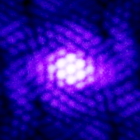 Galaxy Architect
Group: Global Moderators
 United States
United States
Messages: 2613
Status: Offline
| I can't say much about astronomy education across the United States, but at least in my area of northern Virginia education in public schools is quite good. My father currently does substitute teaching for science courses in nearby high schools and sometimes he shows me what the kids are learning -- it's extremely rich and covers new topics such as exoplanets as well as the more fundamental concepts like star formation/evolution, and they're actually going into greater detail now then I had when I was in those classes! Gives me at least some hope for the future of education.
Frostbreath, I greatly enjoyed your post and it's awesome to see how the little ones are doing. Sounds like you've got some future astronomers in the making! I would love to see some of their drawings or projects if you're able to share them. 

|
| |
| |
| HarbingerDawn | Date: Tuesday, 05.03.2013, 08:02 | Message # 7 |
 Cosmic Curator
Group: Administrators
 United States
United States
Messages: 8717
Status: Offline
| Quote (Watsisname) but at least in my area of northern Virginia education in public schools is quite good.
I can't speak for what kind of education there is now, but over a decade ago when I was there there was very little astronomy education. They did offer an astronomy class in high school, but it was so popular that it would fill up so most people couldn't take it  And when I was in elementary school they never said anything about exoplanets (the reference materials had probably not caught up yet) and we didn't learn anything that I didn't already know. Everything I know about astronomy was self-taught. And when I was in elementary school they never said anything about exoplanets (the reference materials had probably not caught up yet) and we didn't learn anything that I didn't already know. Everything I know about astronomy was self-taught.
All forum users, please read this!
My SE mods and addons
Phenom II X6 1090T 3.2 GHz, 16 GB DDR3 RAM, GTX 970 3584 MB VRAM
|
| |
| |
| Watsisname | Date: Tuesday, 05.03.2013, 09:51 | Message # 8 |
 Galaxy Architect
Group: Global Moderators
 United States
United States
Messages: 2613
Status: Offline
| Yeah, I think the topic of exoplanets is quite new to grade level schooling, and is probably in large part thanks to the Kepler mission. I swear Kepler will prove to be one of the greatest boons to public interest in astronomy, on par with Hubble. Though I guess for the older generation it was the Voyager grand tour.
It is interesting to me how many of us basically taught ourselves astronomy from books.  I guess that is because it's one of those subjects that is so hard to learn from school or people around you, that if you really want to learn it you end up gathering all the books you can find. I started when I was four and now I've got bookcases full of material. The most meaningful among them was when my neighbor up the road passed away, and I saved a huge stack of his university physics textbooks that were about to be tossed out and go to landfill. (What a waste!) There was everything from mechanics and optics to quantum and relativity, and all from the 1930s to 1950s! I absolutely treasure them. I guess that is because it's one of those subjects that is so hard to learn from school or people around you, that if you really want to learn it you end up gathering all the books you can find. I started when I was four and now I've got bookcases full of material. The most meaningful among them was when my neighbor up the road passed away, and I saved a huge stack of his university physics textbooks that were about to be tossed out and go to landfill. (What a waste!) There was everything from mechanics and optics to quantum and relativity, and all from the 1930s to 1950s! I absolutely treasure them.

|
| |
| |
| HarbingerDawn | Date: Tuesday, 05.03.2013, 10:10 | Message # 9 |
 Cosmic Curator
Group: Administrators
 United States
United States
Messages: 8717
Status: Offline
| I used to gather books, which of course was the only way to learn anything back then. But several years ago I stopped. Books are expensive, and at the rate at which our knowledge is growing they're practically outdated as soon as they hit the shelves. The internet provides access to more information than anyone could ever possibly use, usually at no additional cost. A lot of what I know about the Solar system and basic cosmology I learned back in the book days, but everything I know about exoplanets and supernovae and most other specific topics I learned online. I never cease to be amazed by how rapidly and fundamentally the internet has changed the way we think about gathering and exchanging information. One of the greatest of all human revolutions, for sure.
All forum users, please read this!
My SE mods and addons
Phenom II X6 1090T 3.2 GHz, 16 GB DDR3 RAM, GTX 970 3584 MB VRAM
|
| |
| |
| midtskogen | Date: Tuesday, 05.03.2013, 10:14 | Message # 10 |
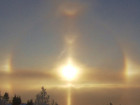 Star Engineer
Group: Users
 Norway
Norway
Messages: 1674
Status: Offline
| What books have you used?
I think I only have one book, "In Quest of the Universe" by Kuhn. While I prefer more concise, strictly to the subject type of books, this book seems in my opinion well suited as an introduction to both astronomy and natural science and should work well at secondary school level. I found it well written and structured. It covers the basics, and could be a basis for further studies at university level or sufficient as it is for an amateur/an educated layman.
NIL DIFFICILE VOLENTI

Edited by midtskogen - Tuesday, 05.03.2013, 10:15 |
| |
| |
| SpaceEngineer | Date: Tuesday, 05.03.2013, 10:28 | Message # 11 |
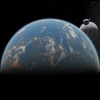 Author of Space Engine
Group: Administrators
 Russian Federation
Russian Federation
Messages: 4800
Status: Offline
| Frostbreath, you are doing a magnificent work! When I was kid, I learn astronomy by myself using few books and father's 20x tube. I absolutely love these books and felt the hunger for information - there almost no literature in the libraries (or I didn't know how to find it), no Internet, and I gorged TV programs about space. There no astronomy at school, only few lessons in the 5th class and a short course in 11th class (well, at that age I could teach astronomy for my classmates by myself). I even never been in a planetarium (until last year). I dreamed to have a program like SE, and I was impressed when I discover Celestia. But I was disappointed by its restrictions and start creating my own space simulator. And now you can see the product of almost 8 years of developement:) I had plans to create an educational program with easy controls, and I dreamed how it will be used in schools to teach kids. And now I see how men like you did it, and I am absolutely happy! Thank you for your work! I would make my best in further developement of SE. I want to introduce everyone to the majesty and beauty of the Universe!

|
| |
| |
| SolarLiner | Date: Tuesday, 05.03.2013, 15:41 | Message # 12 |
 Explorer
Group: Users
 France
France
Messages: 267
Status: Offline
| Why can't we have such teachers here in France ? I am raging at our current (reallyyyyy closed) educational system, because something like this will be not possible, like not possible ever. You sure are a very cool teacher, Frostbreath !
custom landing page to share: http://bit.ly/spaceengine
|
| |
| |
| Frostbreath | Date: Tuesday, 05.03.2013, 17:27 | Message # 13 |
 Space Pilot
Group: Translators
 Netherlands
Netherlands
Messages: 118
Status: Offline
| Ooh, I feel honored to have recieved so many positive comments!  Thanks a lot everyone for the support! I added a summary of Day 5, which was the start of a huge job on creating a solar system which is scaled down and the creation of posters about any subject like comets, Saturn or binary star systems. The video I mention in the summary is now being uploaded. It is my first attempt on a Space Engine video, but the kids even gave me a standing ovation for it. :P Thanks a lot everyone for the support! I added a summary of Day 5, which was the start of a huge job on creating a solar system which is scaled down and the creation of posters about any subject like comets, Saturn or binary star systems. The video I mention in the summary is now being uploaded. It is my first attempt on a Space Engine video, but the kids even gave me a standing ovation for it. :P
Quote (SolarLiner) Why can't we have such teachers here in France ?
If I could speak French fluently, I'd come over straight away. :P
Quote (SpaceEngineer) Frostbreath, you are doing a magnificent work! When I was kid, I learn astronomy by myself using few books and father's 20x tube. I absolutely love these books and felt the hunger for information - there almost no literature in the libraries (or I didn't know how to find it), no Internet, and I gorged TV programs about space. There no astronomy at school, only few lessons in the 5th class and a short course in 11th class (well, at that age I could teach astronomy for my classmates by myself). I even never been in a planetarium (until last year). I dreamed to have a program like SE, and I was impressed when I discover Celestia. But I was disappointed by its restrictions and start creating my own space simulator. And now you can see the product of almost 8 years of developement:) I had plans to create an educational program with easy controls, and I dreamed how it will be used in schools to teach kids. And now I see how men like you did it, and I am absolutely happy! Thank you for your work! I would make my best in further developement of SE. I want to introduce everyone to the majesty and beauty of the Universe!
Space Engine has truly impressed the kids during this project. They wished to learn more about it so I am going to help them getting the sim from this site! This program is doing an amazing job at kids when I speak of obtaining knowledge about the mysteries of space. They are able to tell me what they learned earlier because they saw it all with their own eyes. So I also say a big thank you to you as well! Space Engine is a big part in the success of this project.
Quote (Watsisname) Frostbreath, I greatly enjoyed your post and it's awesome to see how the little ones are doing. Sounds like you've got some future astronomers in the making! I would love to see some of their drawings or projects if you're able to share them.
I'm planning on making photo's of the solar systems and the drawings of the exoplanets. Some turned out REALLY well and it shows how easy they are learning through this project. 
EDIT: I added the video I used to the OP! Check Day 5!
Amateur astronomer. Owner of a Celestron C8 telescope and, of course, Space Engine. Translator for Dutch.

Edited by Frostbreath - Tuesday, 05.03.2013, 18:55 |
| |
| |
| apenpaap | Date: Wednesday, 06.03.2013, 01:02 | Message # 14 |
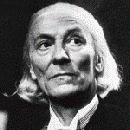 World Builder
Group: Users
 Antarctica
Antarctica
Messages: 1063
Status: Offline
| It's a very cool project you're doing, teaching them astronomy like this. We had some astronomy lessons in my primary school (in hindsight I may have annoyed my teachers quite a bit during them by being a smartass; I already knew all they told from books and corrected them on stuff XD) but nothing this great.
I occasionally stream at http://www.twitch.tv/magistermystax. Sometimes SE, sometimes other games.
|
| |
| |
| HarbingerDawn | Date: Wednesday, 06.03.2013, 01:04 | Message # 15 |
 Cosmic Curator
Group: Administrators
 United States
United States
Messages: 8717
Status: Offline
| Quote (apenpaap) in hindsight I may have annoyed my teachers quite a bit during them by being a smartass
This was pretty much the same experience I had 
All forum users, please read this!
My SE mods and addons
Phenom II X6 1090T 3.2 GHz, 16 GB DDR3 RAM, GTX 970 3584 MB VRAM
|
| |
| |